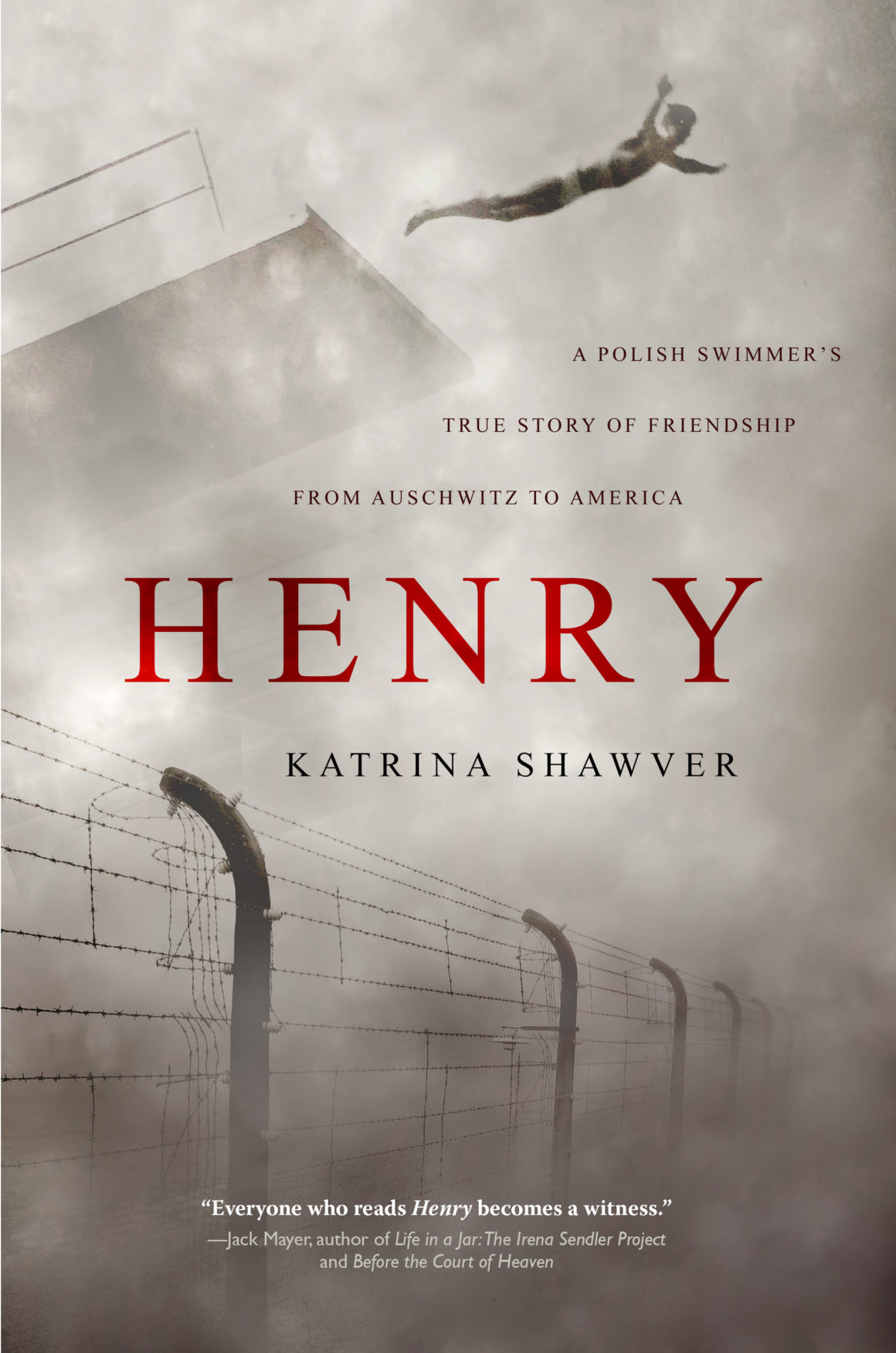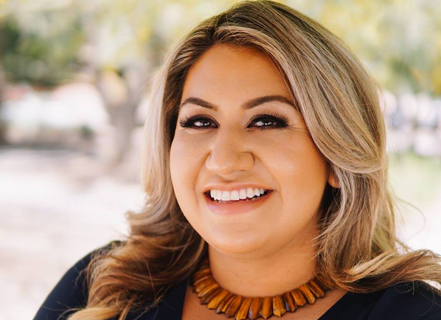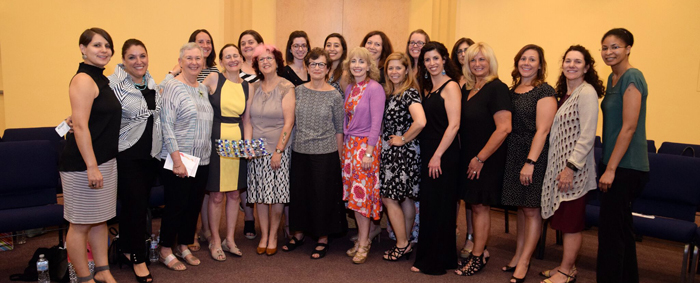Little did Katrina Shawver know that when she received a lead to interview Holocaust survivor Henry Zguda for a newspaper article, that she would become the only one entrusted with telling the story of his life.
“In November 2002, I wrote my first column on Henry,” says Katrina. “His story fascinated me on several levels. I am a history geek and I love biographies. When I wrote for the paper (East Valley Republic), I loved telling true stories that would make people think.”
 And Katrina’s book does just that. Henry: A Polish Swimmer’s True Story of Friendship from Auschwitz to America, tells the story of a Polish champion swimmer, who was Catholic, and had been imprisoned in Auschwitz and Buchenwald – all written by a non-Jewish woman.
And Katrina’s book does just that. Henry: A Polish Swimmer’s True Story of Friendship from Auschwitz to America, tells the story of a Polish champion swimmer, who was Catholic, and had been imprisoned in Auschwitz and Buchenwald – all written by a non-Jewish woman.
After that initial interview, Katrina was on her patio with a friend talking about Henry and how fascinating he was, and that there was one no one to write his story. He had no siblings, no children and few relatives. Her friend suggested that maybe Katrina was the one to write it. “This is the same friend who told me I could hang ceiling fans and build shelves,” she jokes.
Katrina thought about what her friend said, and one day she called Henry and said, “Henry let’s write a book.” She explains that the two had hit it off when they initially met and over the next seven months of meeting twice a week, a true friendship formed.
But then summer vacation began, and Katrina got busy with her job, her husband and three children. “I was getting embarrassed that the thing I had promised to write wasn’t coming together,” she says.
At the suggestion of a friend, she went to a writer’s group. Everyone agreed that the story was fascinating, but then a woman commented, “Didn’t you just let an old man bend your ear – how do you know it’s true?”
“That was the best comment I ever received because she was right,” says Katrina. “That quadrupled the size of the project – to verify that history and his stories. I put it aside and said there’s no way.”
But Katrina believed Henry’s stories and had seen photos and evidence. “One day he took me into his office, and there was a poster on the wall that his nephew had done for a school project, and there was this letter glued to the poster board.” She asked Henry what it was and he responded, “One of my letters from camp. Do you want to see more – I have more.” Henry had original letters on Auschwitz and Buchenwald stationery from when he had written home to his mother. “That was a true ‘Oh my God’ moment,” says Katrina.
Katrina had also become very close with Henry’s wife, Nancy. “I was the only other person alive who knew as much about her husband,” she admits. “Nancy was Italian, from the Bronx, and you never got in the house without a glass of wine, and you never left without food.”
Then in November 2003, Henry died unexpectedly.
After Henry’s death, a friend of a friend reached out to the U.S. Holocaust Museum, and the museum’s head of archives came immediately. Katrina helped Nancy organize a donation of 39 documents, photos and artifacts. “I knew then that they would be in public domain and that they would be preserved,” she says.
Nancy passed away in June 2013. Since she only had four distant nieces and very few relatives, Katrina organized the funeral and wrote the obituary. At the funeral, she asked the relatives how much Henry had told them, and soon realized that he had not told them a lot.
“I realized then that I either have to live with myself for not finishing the book or I have to do what I need to do to finish it,” says Katrina.
She flew to Poland in September of 2013, and inspired by the movie “Julie & Julia” where a blogger wrote every day for a year about trying Julia Child’s recipes, Katrina blogged every day for nine months. These blogs helped form the core of what later became the book.
“I knew nothing about Poland, so I became fascinated by this unknown place that obviously ended up playing a key part in what happened in World War II,” says Katrina.
What she began to realize was that everything Henry had been through was more than one man’s story. “It was a piece of history that I never found documented,” she says. “That was very powerful to me as well. This really needed to be written down.”
Katrina explains that Henry, the book, is unusual in many ways, but three in particular. “First, it’s a view of the Holocaust through Polish eyes. Second, it’s written in the first person in terms of his voice. It isn’t a biography researched after the fact, and having to make up dialogue; it was actual dialogue we had. Third, there are 80 original documents and photos from various sources included in the book.”
For so long she was intimidated to write his story because it was different. “I wasn’t Polish or Jewish, I hadn’t lost family in the Holocaust – it didn’t match anything else that had been written,” says Katrina. “But now I’ve realized that that’s part of the power of it. It is a testament to the Holocaust and what happened to Poland.”
With all of her research, Katrina has kind of become a champion for Poland. “History has two sides, and we need to hear both. In Poland, the penalty for helping a Jew, even a drink of water or a crust of bread, was death to you and your entire family,” she says. “War is never black and white. It brings out the worst in people, and it brings out the best in people.”
Katrina would love to find another Polish survivor to collaborate with because she feels that she could build on what she has already learned writing Henry.
She wrote Henry nights and weekends while working full-time. “It was my story and his story, and I had worked so hard and invested so much money that I just wanted it to be the best that I could make it,” says Katrina.
“In June 2017, I left my full-time job as a paralegal and I am all in – this is how passionate I am about this story,” she says. “And how much I believe it needs to be out, and how much I want it to be done right.”
And she feels Henry has been with her every step of the way. “Henry seems to be opening some amazing doors for me, from finding an editor to a publisher and now winning awards. It’s been a leap of faith.”
Since launching in November 2017 Henry: A Polish Swimmer’s True Story of Friendship from Auschwitz to America has won numerous awards and was added to the list of Books about Poland in English by The Consulate General of the Republic of Poland in Los Angeles, the first addition to this list since 2014.
For more information on the book, and Katrina’s book signings and speaking engagements, visit katrinashawver.com.






